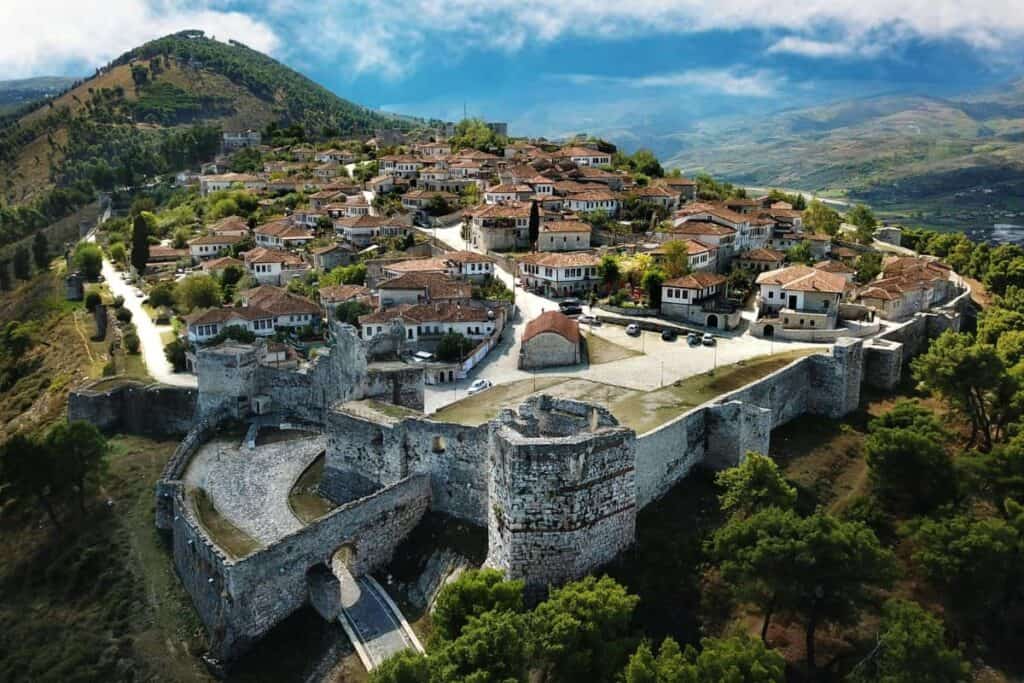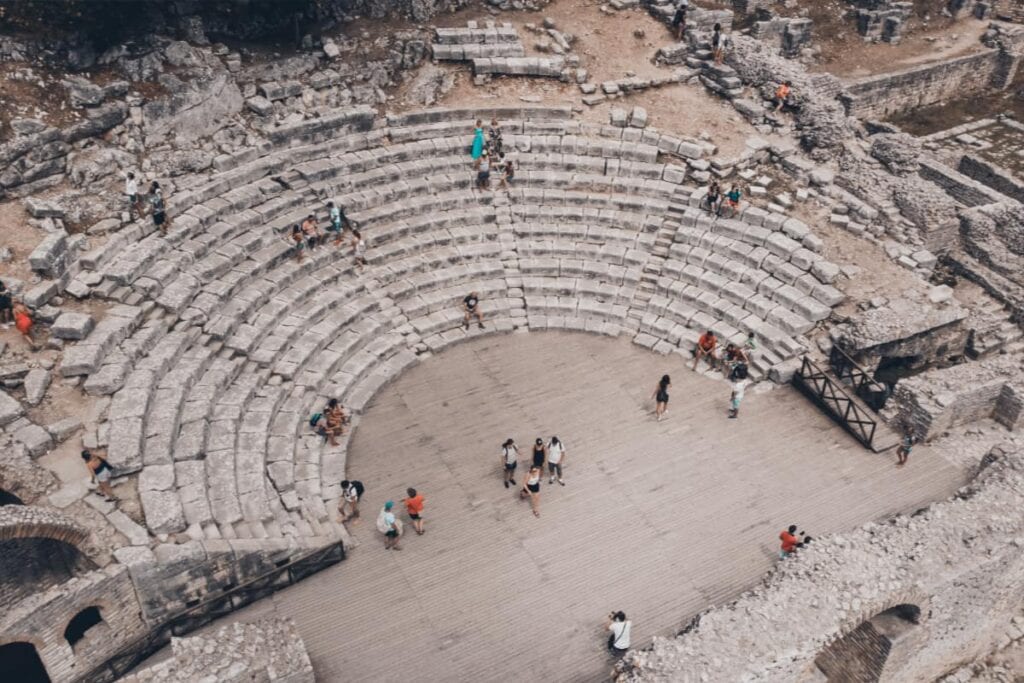Cultural Richness in North Albania
North Albania is a region steeped in tradition, where ancient customs and values are deeply woven into daily life. From unique wedding ceremonies to time-honored music and storytelling, the cultural practices of this region reflect its history, resilience, and identity.
1. Besa: The Code of Honor
The concept of Besa (word of honor) is a cornerstone of Albanian culture, particularly in the north.
What It Represents:
- A sacred promise that signifies trust, hospitality, and loyalty.
- Historically tied to the Kanun of Lekë Dukagjini, a traditional code of law.
Why It’s Important: Besa exemplifies the strong sense of community and integrity that defines the people of Northern Albania.
Tip: Engage with locals to hear real-life stories that highlight the significance of Besa in everyday life.
2. Highland Wedding Traditions
Northern Albanian weddings are vibrant celebrations steeped in symbolism and ritual.
Key Elements:
- The shamia e nuses (bride’s scarf), symbolizing the bride’s new role in her family.
- Traditional dances, such as Valle e Tropojës, performed by both families.
- Elaborate feasts featuring local dishes like flija and roasted lamb.
Why It’s Special: These ceremonies are not just about uniting two individuals but about strengthening ties between families and communities.
Tip: If you’re invited to a wedding, bring a thoughtful gift and prepare to join in the dancing!
3. Iso-Polyphony: The Music of the Mountains
Iso-polyphony, recognized by UNESCO, is a traditional singing style primarily practiced in southern Albania but also adapted uniquely in the north.
Features:
- Layered voices create a haunting, harmonious sound.
- Songs often tell tales of love, war, and daily life.
Where to Experience:
- Cultural festivals in villages like Tropoja and Theth.
- Special performances during weddings and religious celebrations.
Tip: Attend a live performance to truly appreciate the complexity and emotional depth of iso-polyphony.
4. Gjakmarrja: Blood Feud Traditions
While largely a thing of the past, the concept of gjakmarrja (blood feud) still lingers in cultural memory.
What It Involves:
- A historical practice governed by the Kanun, where families sought revenge to settle disputes.
- Modern efforts have transformed this into a focus on reconciliation and forgiveness.
Why It’s Notable: Understanding gjakmarrja offers insight into the complex social structures and values of the region.
Tip: Visit museums or attend lectures in Shkodër for an educational perspective on this tradition.
5. Artisan Crafts: A Showcase of Skill
The people of North Albania are known for their intricate craftsmanship, passed down through generations.
Top Crafts:
- Embroidery: Traditional patterns used in clothing and home decor.
- Wood Carving: Artisanal furniture and decorative items made from local timber.
- Felt Making: Handmade rugs and garments crafted from sheep’s wool.
Where to See It:
- Artisan markets in Shkodër.
- Local workshops in villages like Vermosh and Tamara.
Tip: Purchase directly from artisans to support their craft and take home a piece of Albania’s cultural heritage.
6. Highland Cuisine: A Taste of Tradition
Food in North Albania reflects the region’s natural resources and cultural traditions.
Must-Try Dishes:
- Kacamak: A hearty dish made from cornmeal and cheese.
- Tavë Krapi: Carp fish cooked in a clay pot with onions and tomatoes, popular near Lake Shkodër.
- Wild Herb Teas: Locally foraged herbs like mountain tea and thyme brewed into aromatic infusions.
Why It’s Special: The simplicity and authenticity of the cuisine connect diners to the land and its people.
Tip: Join a cooking class in a guesthouse to learn how to prepare traditional dishes.
7. Festive Celebrations in the Highlands
North Albania is home to lively festivals that celebrate its unique culture and heritage.
Top Festivals:
- Logu i Bjeshkëve: A beauty pageant and cultural festival held annually in Kelmend.
- Shëngjin Feast Day: A religious celebration in Shkodër, featuring music and community feasts.
- Harvest Festivals: Marking the end of the agricultural season with food, dancing, and storytelling.
Tip: Check local calendars to align your visit with these events for an unforgettable experience.
8. Folklore and Legends
The mountains of Northern Albania are steeped in myths and legends, often passed down through storytelling.
Famous Tales:
- The Legend of Rozafa, about the sacrificial construction of Rozafa Castle.
- Stories of supernatural beings, such as zanas, protective mountain spirits.
Why It’s Fascinating: These stories provide a deeper understanding of the region’s spiritual and cultural identity.
Tip: Ask local guides or elders to share their favorite legends during your visit.
Tips for Exploring Culture in North Albania
- Engage Locally: Attend festivals, visit markets, and interact with locals to experience traditions firsthand.
- Be Respectful: Learn about customs like greetings, dress codes, and etiquette, especially in rural areas.
- Document Thoughtfully: Ask for permission before photographing people or cultural ceremonies.


